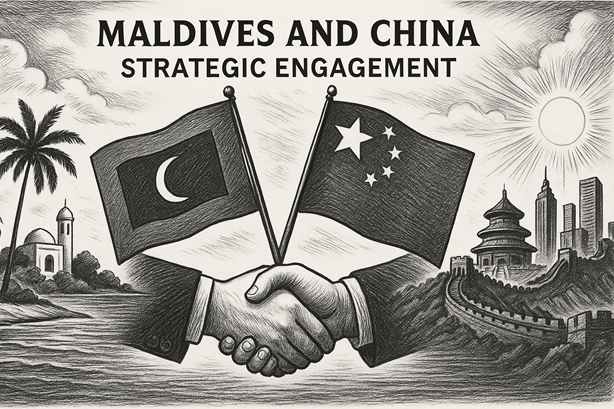The Bay of Bengal is no longer just a sea; it’s a chessboard. China has poured billions into the region under its Belt and Road Initiative, building ports in Gwadar, Kyaukpyu, and Hambantota, all aimed at securing maritime dominance. In Bangladesh, Chinese investments are growing—from the $400 million modernization plan for Mongla Port to infrastructure loans approaching $2.1 billion in 2025. India, meanwhile, eyes Chittagong as a lifeline to its Northeast, bypassing the vulnerable Siliguri Corridor. The U.S., wary of China’s rising tide, has stepped up its own interest, with recent high-profile visits to Chittagong Port sparking both hope and suspicion.
Read moreHow Sanctions Affect Global Food Supplies
This article looks at how sanctions have affected food supplies from ancient times to today. It covers current examples like Iraq in the 1990s, Syria, and the Russia-Ukraine conflict. It also points out the major role the United States—under both Democratic and Republican governments—has played in creating these sanction policies.
Read moreSAARC vs. BIMSTEC Institutional Dynamics and Bangladesh’s Strategic Position
The main idea of this article is that whether these regional groups succeed or fail depends on how well they can set aside political conflicts and focus on working together in useful ways. In this changing landscape, Bangladesh is in a strong position. It can help shape regional politics, improve connections between countries, and boost its role in diplomacy—especially as SAARC loses momentum and BIMSTEC becomes more active.
Read moreThe Global Race for Rare Earth Elements: Power, Economics, and Strategy
The global rare earth elements landscape is characterized by strategic maneuvers, supply chain realignments, and geopolitical considerations. While efforts by the U.S., EU, and Australia to diversify sources and build domestic capacities are gaining momentum, China’s entrenched position in the market presents ongoing challenges.
Read moreBangladesh and the Indian Ocean: Sailing Strategic Seas
With 90% of its trade conducted via sea routes, Bangladesh’s economy is deeply tied to maritime activities. Recognizing this, the nation has invested in modernizing its naval capabilities, transitioning from a “buyer’s navy” to a “builder’s navy” by developing indigenous shipbuilding facilities and acquiring advanced vessels, including submarines.
Read moreThe Catastrophic Consequences of an India-Pakistan Nuclear War: Scenarios, Impacts, and Strategic Implications
A nuclear war between India and Pakistan wouldn’t just destroy the two countries involved—it would have serious effects on the whole region and even the world. The damage to the environment, the collapse of economies, and the scale of human suffering would be unlike anything we’ve seen before. This makes it more important than ever for countries to focus on diplomacy, peaceful conflict resolution, and steps toward reducing nuclear weapons.
Read moreChina’s Hydropower Diplomacy, the Mekong River and the Ganges-Brahmaputra Talks
China’s approach to building dams in the Mekong region holds both warnings and useful insights for countries in the Ganges-Brahmaputra area. The Mekong case shows that although dams built upstream can cause serious problems for countries downstream, it’s still possible to make progress through steady diplomatic efforts—especially in terms of improving transparency, sharing data, and building stronger regional cooperation.
Read moreAI in War: How Algorithms are Changing Command, Control, and Chaos
That doesn’t mean we have to reject AI in War or hold on to old-fashioned ways of making decisions. Instead, it means building systems where humans and machines work together—each doing what they’re best at, while making up for each other’s weaknesses.
Read moreMaldives and China Strategic Engagement
Over the past fifty years, the relationship between the Maldives and China has transformed from formal diplomatic interactions into a deep strategic partnership. What started as limited engagement from the 1970s to the 2000s has grown into a complex involvement across multiple areas: China is now a key player in the Maldives’ economy, infrastructure, and increasingly, its security. For the Maldives, China provides fast development funding and offers an alternative to traditional aid sources, but this comes with the risk of rising debt and geopolitical tensions. The country’s governments have fluctuated in their approach to China, sometimes warming to the relationship and at other times pulling back, influenced by both domestic politics and external pressures. However, the overall trend shows a growing Chinese presence.
Read moreFighting Terrorism, Political Games, and Global Power Struggles
Terrorism in the next decade will be closely tied to digital technology and global politics. Countries will use counterterrorism both as a defensive shield and an offensive tool. Expect to see more data-sharing, AI tools, and international forums working together. But also expect more covert actions and propaganda dressed up as counterterrorism. The big challenge for governments will be to separate real security needs from political games. As experts warn, terrorism isn’t going away—but it’s not one single thing, and it’s often shaped by the larger power struggles playing out behind the scenes. The most important task will be keeping counterterrorism rooted in facts and human rights, not just strategy.
Read more









